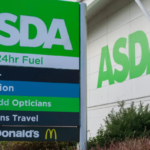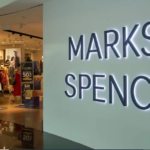The Labour government’s proposal to reduce business property relief by 50% has caused concern among family-owned businesses, with many now facing significant new costs. The policy, which allows family-run businesses to pass down assets tax-free, has left companies like Berry Bros & Rudd grappling with the prospect of higher financial burdens.
Emma Fox, CEO of the historic wine merchant Berry Bros & Rudd, described the proposed change as a “body blow” to the company, which holds property assets worth around £90 million. These include its iconic headquarters on Pall Mall, a fine wine storage facility in Kent, and a 50% stake in Hampshire’s Hambledon Vineyard. CFO Emily Rae emphasized the crucial role the relief plays in maintaining family control of the business, saying, “It’s something the families have relied upon to keep the business within the family.”
This policy shift has prompted Berry Bros & Rudd to reevaluate its long-term investment strategies. Fox, who has a background with Asda and Bass, warned that the inheritance tax changes would force the company to alter its “patient capital” approach, focusing on generational growth rather than short-term profits. “This budget forces us to operate differently,” she added.
The concerns raised by Berry Bros & Rudd are echoed across the UK’s family business sector. Industry figures such as Sir James Dyson have criticized the policy, calling it a “family death tax” that could harm both established businesses and emerging entrepreneurs.
These warnings come as Berry Bros & Rudd released its financial results for the year ending March, showing a challenging year for the company. The firm reported a 50% drop in earnings before interest, taxes, depreciation, and amortization (EBITDA), falling to £10.1 million, and a pre-tax loss of £2.2 million. These declines reflect a tough market environment and significant investments, including a £27 million commitment to expand operations.
Part of this investment included a joint venture with port house Symington to acquire Hambledon Vineyard and a stake in the Cotswolds Distillery. However, the company has faced setbacks in its US operations. Hotaling, its San Francisco-based spirits importer, which accounts for roughly 30% of revenue, saw a significant downturn due to falling post-pandemic spirit sales in the US.
Despite these challenges, Fox expressed optimism, noting improvements in Hotaling’s performance and confidence that the company would outperform competitors as the US market recovers. The core business of fine wine retail and storage remains strong, with single-digit growth in retail and a 25% increase in storage revenue driven by demand for premium, temperature-controlled wine storage.
In addition, Berry Bros & Rudd recently completed its first fine wine auction and saw its events division grow by 16%. Chair Lizzy Rudd reaffirmed the board’s commitment to sustainability, approving a dividend increase to £13.10 per share, up from £7.94 last year, reflecting the company’s “sustainable underlying growth” despite tough conditions.









